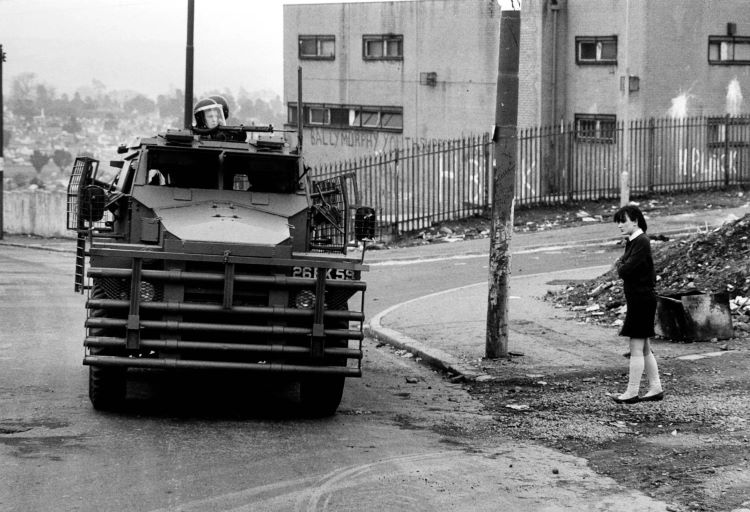A Plan For Northern Ireland Veterans Is Missing From The Queen's Speech
3 min read
The government has been accused of lacking the "political commitment" to its pledge to protect Northern Ireland veterans from criminal trials after failing to include a plan for sensitive legacy issues in the Queen's Speech.
Boris Johnson has repeatedly vowed to put an end to "vexatious" prosecutions against British army veterans who served during The Troubles in Northern Ireland. He made the pledge during his campaign to lead the Conservative party and be Prime Minister in 2019.
However, there was no plan for doing so in the 25 pieces of legislation announced on Tuesday.
The government said "it is clear that the current system for dealing with the legacy of the past is not working well for anybody" and that it would introduce a legacy package which "delivers better outcomes for victims, survivors and veterans, focuses on information recovery and reconciliation, and ends the cycle of investigations".
The government has however said it will publish details of its plan "in the coming weeks".
The Troubles refers to a period of civil conflict in Northern Ireland between the 1960s and 1990s which resulted in the death of more than 3,500 people. Numerous veterans who served for the British army during the conflict are facing trial for alleged unlawful behaviour, including murder.
Johnny Mercer, the former defence minister who wants former army personnel who served in the province to have greater legal protections against prosecutions, said the government had so far failed to deliver on its promise.
"The words in this Queen Speech are identical to the ones that were in last year's, and the one before that," he told the House of Commons Defence Committee on Tuesday.
Mercer, the Conservative MP for Plymouth Moor View, resigned from Cabinet last month in protest against the government's plan to refuse Northern Ireland veterans the same protections as those given to veterans who served in Iraq and Afghanistan. Despite the Prime Minister's public statements, the government is yet to bring forward for a plan giving greater protections to Northern Ireland veterans due to the sensitivities around the issue.
Despite the Prime Minister's public statements, the government is yet to bring forward for a plan giving greater protections to Northern Ireland veterans due to the sensitivities around the issue.
Recent reports that said the government planned to put an end to prosecutions for British army veterans and former members of paramilitary groups that were active during the Troubles, and instead adopt a "truth and reconciliation" model, prompted fury in Northern Ireland.
Sinn Fein, Alliance, and the SDLP, as well as the Westminster Labour Party, accused the government of betraying victims of violence in order to protect former army personnel.
Mercer, who found himself at odds with some government colleagues over his stance, this afternoon said: "We have to find a policy that provides truth and reconciliation where it can, but also certainty for veterans.
"That is not undeliverable but it requires a political commitment that we have not seen to date". The Troubles officially came to an end 23 years ago with the signing of the Good Friday Agreement. However, crimes allegedly carried out by actors on both sides of the conflict remain very contentious and legal cases have taken years to materialise.
The Troubles officially came to an end 23 years ago with the signing of the Good Friday Agreement. However, crimes allegedly carried out by actors on both sides of the conflict remain very contentious and legal cases have taken years to materialise.
On Tuesday a coroner ruled that 10 people killed in the wake of an army operation in Belfast in 1971 were innocent, and that nine were killed by the army.
Louise Haigh, the shadow Northern Ireland Secretary, said the ruling showed the "the case for a comprehensive legacy process, with families able to discover the truth about what happened to their loved ones and where possible, justice, is strong and compelling.
"Ministers promised victims such a process, they owe it to families to deliver on their commitments".
Last month the trial of two former paratroopers accused of murdering an IRA leader in 1972 collapsed after the judge ruled that the evidence was inadmissable.
PoliticsHome Newsletters
PoliticsHome provides the most comprehensive coverage of UK politics anywhere on the web, offering high quality original reporting and analysis: Subscribe
